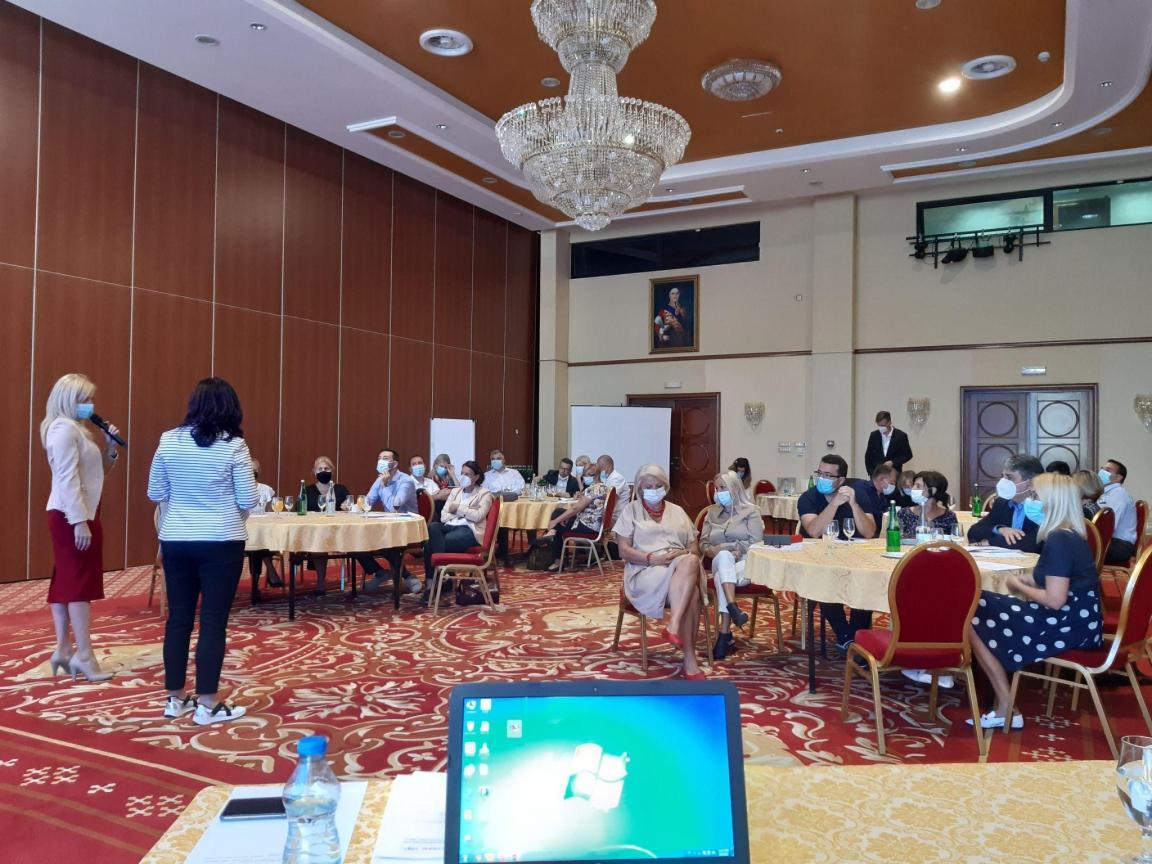
Background
Jelena Bojović, policy director at the National Alliance for Local Economic Development (NALED), has worked for many years to establish “a more efficient health care system at the local and national levels” in Serbia. The government has invested in health sector digitization since 2002. Despite great advances in establishing an eHealth portal and e-prescriptions, data-related gaps remained and many intended users were not accessing these systems. In January 2021, the prime minister decreed the formation of an eHealth steering committee to develop a national eHealth strategy and action plan to overcome these challenges, and invited NALED to initiate a systemic approach to health digitization. The steering committee includes 32 people from the Ministries of Finance, Defense, and Health, and representatives of the private sector and various health worker professional associations and chambers.
The eHealth steering committee formed a working group, which selected the widely accepted World Health Organization (WHO) and International Telecommunication Union’s (ITU) eHealth Strategy Toolkit. Use of this framework allowed Serbia to benefit from best practices defined through numerous country implementations and expert consultations.
Solution
In June, the USAID-funded Country Health Information System and Data Use (CHISU) program oriented the working group to another framework to supplement the eHealth Strategy toolkit. The Health Information Systems Stages of Continuous Improvement (SOCI) assessment framework helped the working group to establish a baseline for the five-year eHealth strategy and identify areas for improvement for the initial two-year action plan. The working group appreciated that the SOCI emphasizes data quality and use, which were not part of the WHO/ITU eHealth Strategy development guidance.
To gather information and populate the SOCI assessment, CHISU met with a variety of stakeholders and presented initial findings at two workshops with the working group. In September, the working group confirmed the summary of the SOCI findings that identified gaps in data use and other SOCI domains, and incorporated a new goal into the eHealth strategy focused on data quality and data use.
Under this goal, the two-year action plan contains 11 key activities to address these gaps. For example, these activities will enable development of a set of standards and a certification program for healthcare applications, will change legislation to enable data gathering and management, and will improve the knowledge of healthcare application users. In a webinar hosted by CHISU in January, working group members discussed their progress on developing the eHealth strategy and goals for the future of health digitization in Serbia.
Impact
The 2022–2026 Serbian eHealth Strategy was adopted in February. The SOCI results strengthened the process laid out by the eHealth Strategy toolkit through drawing attention to data quality and data use and providing a more comprehensive understanding of the current healthcare system in Serbia. “SOCI taught us different perspectives in measuring priorities, how we can prove that certain levels of progress are reached, and what is, in practice, needed for achieving a certain degree of development,” said Jelena.